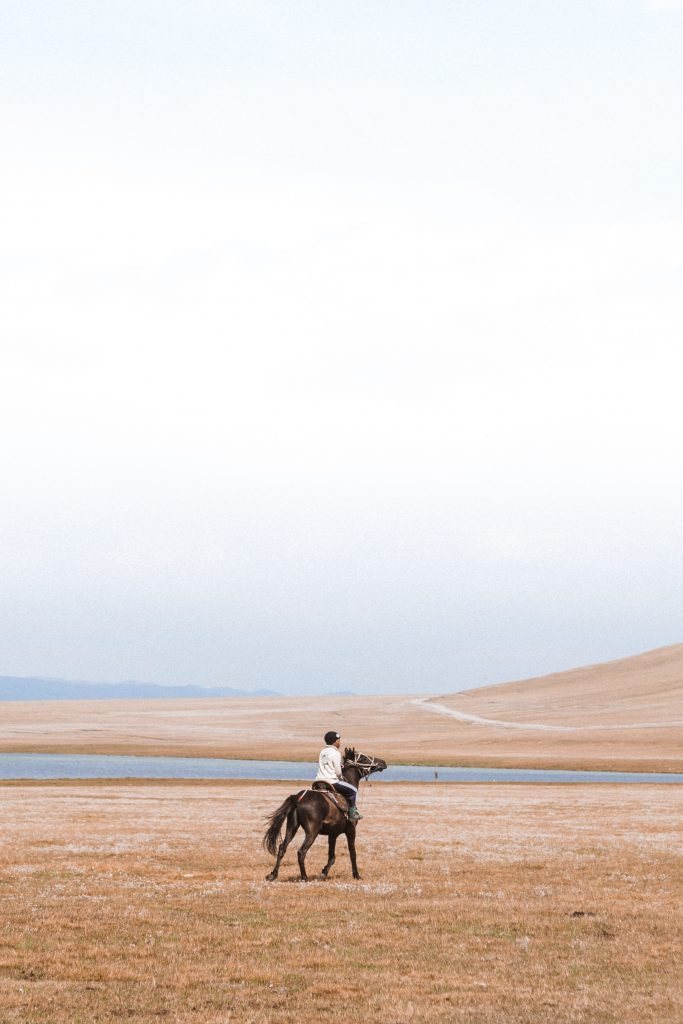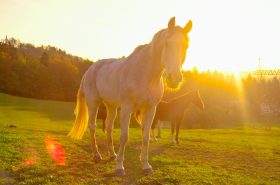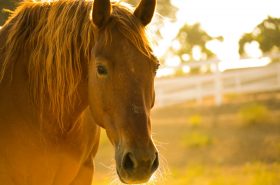Summertime is a great time to ride, and probably one of the busiest times of the year for equestrians.
 Horse shows, trail rides, and other riding events have many of us going full steam. And of course, in between those big events, we need to keep our horses conditioned. Not to mention—riding can be a great stress reliever from work and life, too! But during the summer months, how do you know if it’s too hot to ride?
Horse shows, trail rides, and other riding events have many of us going full steam. And of course, in between those big events, we need to keep our horses conditioned. Not to mention—riding can be a great stress reliever from work and life, too! But during the summer months, how do you know if it’s too hot to ride?
There’s no clear-cut answer, but there is some general information to keep in mind:
Like us, horses cool themselves by sweating. However, under certain conditions, the ability to sweat may be reduced, and the horse may not be able to sufficiently cool himself.

According to Jenifer Nadeau, M.S. Ph.D., Associate Professor and Equine Extension Specialist in the Department of Animal Science at University of Connecticut, the ambient (outside) temperature + relative humidity (in F) can tell us about a horse’s cooling efficiency.
- If the sum of these numbers is less than 130, riding conditions are ideal;
- At 130-150, horses have a decreased ability to sweat;
- At 150 or higher, their ability to sweat is greatly reduced; and
- Above 180, conditions could be fatal.
So for example, if it were 90 degrees F with 70% humidity, the heat index would be 160, which is considered dangerous.
Every horse is different, and you need to keep in mind several factors such as your horse’s level of fitness, any health conditions (like allergies, anhidrosis, or heaves), the intensity of the riding, and if your horse is acclimated to his current environment (in other words, you haven’t recently moved from Colorado to Florida, etc.) Any one of these factors could affect your horse’s ability to cope with the heat.
If you do decide to ride when it’s hot, be observant for signs of dehydration and/or overheating in both yourself and your horse. Profuse sweating, elevated pulse or body temperature, white gums, or “sticky” skin that doesn’t immediately go back after you pinch it are all signs of a serious problem.
Some researchers say if the rider is hot, the horse is hotter. This is probably the best piece of advice to keep in mind.
**Casie Bazay is a freelance and young adult writer, as well as an owner/barefoot trimmer and certified equine acupressure practitioner. She hosts the blog, The Naturally Healthy Horse, where she regularly shares information on barefoot, equine nutrition, and holistic horse health. Once an avid barrel racer, Casie now enjoys just giving back to the horses who have given her so much. Follow Casie at www.casiebazay.com.



